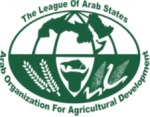Oliver Kirui, Khalid Siddig, Mosab Ahmed, Hala Abushama, Alemayehu Seyoum Taffesse
This study delves into the intricate dynamics of post-conflict agriculture in Sudan through a recent nationwide pre-harvest survey. Conducted between August and October 2023, the survey aimed to unveil the impact of conflict on smallholder farmers, their intentions, and the challenges faced during the agricultural season by drawing on the responses of 3248 farmers in Sudan. The study utilizes a combination of data collection methods (IVR, CATI, and in-person) to collect data, given the inability to collect data through conventional methods in view of the ensuing conflict. Our study finds that 28 percent of surveyed farmers have been displaced, causing significant shifts in farming patterns and lively hoods. The survey uncovers several other critical challenges, such as the inability of 40 percent of farmers to prepare for the summer planting season due to conflict-related factors. Financial constraints emerged as a predominant hurdle, hindering farmers from acquiring essential inputs like seeds and fertilizers. Compounded by adverse weather conditions and increased input prices, this has resulted in a reduction in cultivated land area, raising concerns about lower agricultural output. Additionally, the conflict's immediate impacts are reflected in the surge of prices for livestock, crops, and essential household commodities, posing threats to food security. The winter and next summer seasons are poised to present ongoing challenges, demanding sustained support for farmers and the agricultural sector.
